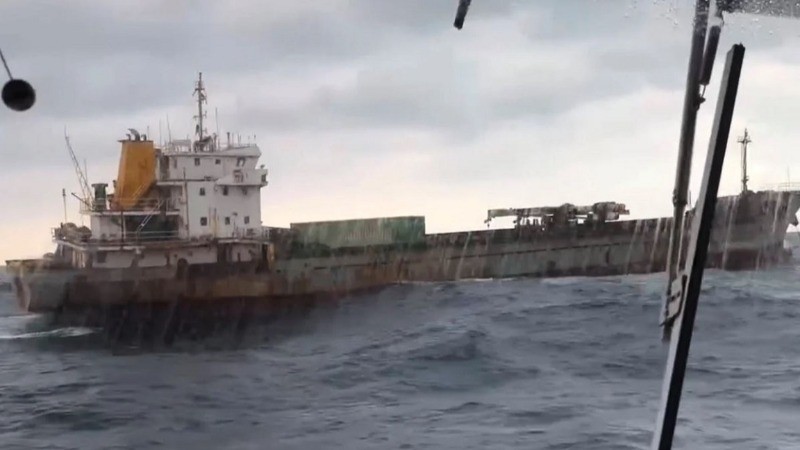
Taiwan is investigating whether a cargo vessel with ties to China caused damage to a critical undersea internet cable, highlighting the island’s vulnerability to infrastructure disruptions. This investigation comes as tensions with China remain high, raising concerns about the security of Taiwan’s connectivity.
Incident Details and Immediate Response
The damaged cable, known as the Trans-Pacific Express Cable, also connects South Korea, Japan, China, and the United States. Chunghwa Telecom, Taiwan’s leading telecom provider, reported the damage early Friday, triggering immediate rerouting of communications to avoid significant internet disruptions.
Later that day, Taiwan's Coast Guard intercepted a cargo vessel near Keelung, a northern port city. The vessel was owned by a Hong Kong company but registered under flags from Cameroon and Tanzania. Initial investigations suggest it was operating under a false identity, using two Automatic Identification System (AIS) transponders.
Maritime analyst William Conroy confirmed the ship broadcasted under the name “Shun Xing 39” at the time of the incident. After interception, its AIS signals switched to the name “Xing Shun 39,” believed to be its real identity.
Tactics and Concerns Over Gray Zone Harassment
The Taiwan Coast Guard suspects the involvement of a "flag-of-convenience" ship in what may constitute gray zone harassment—a tactic of disruption without direct conflict. These activities, often linked to Chinese intimidation strategies, have intensified over the years, according to Gregory Poling, director of the Asia Maritime Transparency Initiative.
Yisuo Tzeng, a researcher at the Institute for National Defence and Security Research, emphasized that such incidents aim to wear down Taiwan’s defenses.
Ongoing Investigation and International Coordination
Taiwanese authorities were unable to board the ship due to rough sea conditions and have sought South Korea’s assistance, as the vessel's crew claimed they were en route there. Records show the Hong Kong-based Jie Yang Trading Ltd took ownership of the ship in April 2024, raising further questions about its operations and ownership.
Recurring Incidents and the Push for Resilient Infrastructure
This is not the first time Taiwan has faced cable disruptions. Between 2017 and 2023, undersea cables near the Matsu Islands experienced around 30 breaks, including two significant incidents last year that left residents with unreliable internet for months.
In response, Taiwan is working on a backup communication system using low-Earth orbit satellites to maintain connectivity during crises. However, officials have emphasized avoiding reliance on SpaceX, given its extensive business ties with China.
A Global Concern
Similar incidents involving undersea cable damage have also occurred in Europe. For instance, in November, the severing of two Baltic Sea fibre-optic cables led to investigations of a Chinese-flagged ship in the area. Such events highlight the challenges of determining whether these disruptions are deliberate sabotage or accidents in crowded maritime zones.
As China continues to escalate maritime activities, including deploying militarized fishing vessels, Taiwan and its allies face mounting pressure to protect critical infrastructure while navigating an increasingly volatile geopolitical landscape.